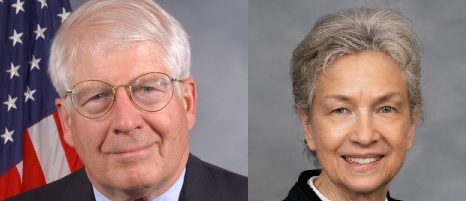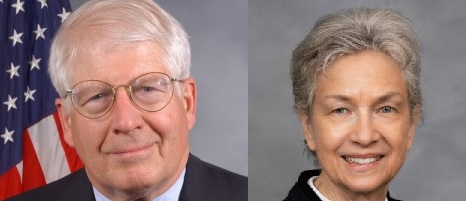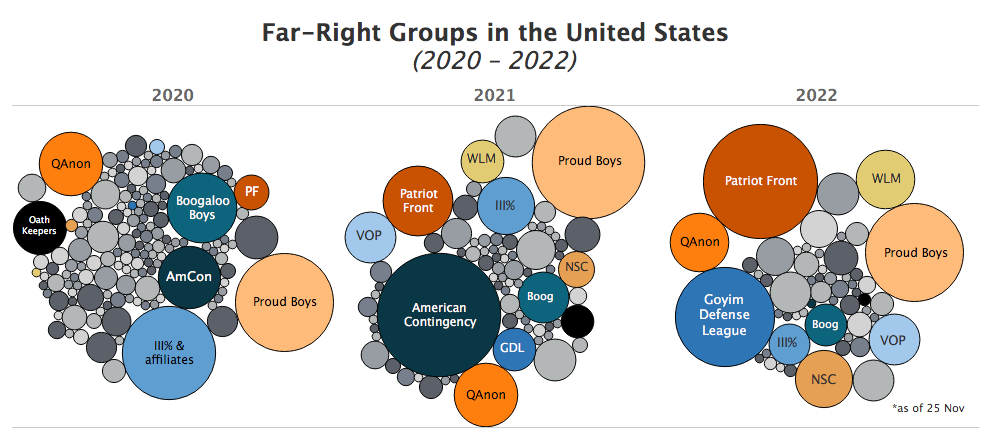To reflect on the year, Chapelboro.com is revisiting some of the top stories that impacted and defined our community’s experience in 2022. These stories and topics affected Chapel Hill, Carrboro and the rest of our region.
It was an even-numbered year, so of course a lot of our attention was concentrated on the ballot box. The 2022 midterms were good for Democrats on the national level, but good for Republicans on the state level. Locally, the 2022 election was defined not by partisan politics, but by the retirement of two veteran lawmakers and the cascade of shifting seats that followed.
In the first few months of 2022, it appeared that Republicans were about to have a very good year. The President’s party typically loses seats in midterm elections — in fact most recent midterms had been “wave” elections, where the President’s party got shellacked — and 2022 was shaping up to be no exception. Republicans enjoyed big polling leads as President Biden’s approval numbers cratered, thanks to widespread dissatisfaction over rising inflation, gridlock in Washington, and last year’s botched pullout in Afghanistan.
And then — at least to an extent — things changed.
On the national front, the story of 2022 is a story of surprising Democratic resilience. Buoyed by a public anti-Republican outcry following the Supreme Court’s anti-abortion ruling in June — and aided by the GOP’s decision to nominate flawed, Trump-backed Senate candidates in swing states like Georgia and Pennsylvania — Democrats managed to avoid big midterm losses, bucking a decades-old trend. Republicans did pick up enough seats to retake control of the U.S. House, but only narrowly — and Democrats were able to retain control of the U.S. Senate, even picking up a seat in Pennsylvania.
Here in North Carolina, though, it was a different story.
The 2022 election cycle in North Carolina began, yet again, with a legal battle over redistricting. Tasked with drawing new district lines after the 2020 census, Republican lawmakers produced maps that would have effectively guaranteed veto-proof GOP majorities in the State House and Senate, and given Republicans at least a 10-4 edge in the U.S. House. But as in previous election cycles, those maps failed to pass legal muster. The State Supreme Court struck them down as an unconstitutional act of partisan gerrymandering, ordering lawmakers back to the drawing board — and even appointing their own special master to redraw the Congressional lines. The drawn-out battle forced the state to push back its primary from March to May — and the fight is still ongoing, as the U.S. Supreme Court is now weighing whether state justices overstepped their authority.
The maps North Carolina ultimately used in 2022 had a much less heavy partisan lean. But it was still a very good year for the GOP: North Carolina Republicans put off the abortion issue, avoided public fights over election denial, and pushed back against some of their loudest extremists (ousting Madison Cawthorn in the primary), and managed to buck the national trend by winning all the key statewide races. Republicans picked up two seats on the State Supreme Court to retake the majority there; Trump-backed candidate Ted Budd narrowly edged Cheri Beasley in a high-profile Senate race; and despite the less gerrymandered district map, Republicans still nearly clinched veto-proof majorities in both the State House and Senate, thanks to big gains in formerly-Democratic regions of eastern North Carolina.
Locally, Republicans made no gains, as Orange County remained as Democratic-leaning as ever. Still, Orange County ends 2022 with a completely different legislative delegation than it had when the year began — thanks to a generational transformation sparked by the retirement of two longstanding lawmakers.
The first was David Price, who announced last fall that he would not be running for reelection, after 17 terms and more than three decades serving in the U.S. House. The second was Verla Insko, who announced her own retirement in February after 25 years in the State House.

U.S. Representative David Price (left) and NC Representative Verla Insko (right) each announced their plans to retire months in advance to set to up competitive races to replace them.
Price’s retirement set off a chain reaction. State Senator Valerie Foushee immediately announced plans to leave her seat to run for Congress. State House Rep. Graig Meyer followed, announcing his own intent to run for Foushee’s seat in the Senate. And Orange County Commissioner Renée Price stepped up to run for Meyer’s seat in the House. All three ultimately won their respective races — though Foushee first had to fend off a tough primary challenge from progressive Durham County Commissioner Nida Allam.

Valerie Foushee, Graig Meyer and Renée Price are all long-time, local elected officials who will be changing seats once the calendar year ends.
Meanwhile, Insko’s retirement led to the closest local election of the year: a friendly primary battle between Democrats Allen Buansi and Jonah Garson for the right to replace her in the State House, which Buansi ultimately won by less than 500 votes. Buansi was able to take his seat a few months early, when Insko officially stepped down shortly after the May primary.
The Buansi-Garson race was a good-natured one, but the local primary cycle was not without its fireworks. The race for Orange County Register of Deeds, usually an under-the-radar affair, turned into one of the year’s most high-profile races as incumbent Mark Chilton fought off a spirited challenge from former County Commissioner Penny Rich, who sharply criticized Chilton’s performance during the pandemic. A race for an open seat on the Carrboro Town Council indirectly sparked a months-long controversy, after a campaign volunteer reportedly got into a physical confrontation with owners and customers at Present Day on Main, which then temporarily shut down over safety concerns. And lingering ill will from the Foushee-Allam Congressional race ultimately erupted in heated arguments (and two separate walkouts) on the Carrboro Town Council.
Those were the local races that grabbed the most attention, but there were other key battles in 2022. Jeff Nieman defeated Kayley Taber in the race to replace retiring Orange-Chatham County District Attorney Jim Woodall. Andre Richmond and Anne Purcell replaced two outgoing members of the Orange County School Board. And in Carrboro, Eliazar Posada won a special election for an open Town Council seat, becoming the first openly gay Latino elected official in North Carolina history.
But more than anything, it was the generational shift triggered by Price and Insko’s retirement that ultimately defined 2022 in local elections. And that ‘generational shift’ is not just limited to who occupies which seat. There was one other big statewide development in 2022 that could have major long-term implications: unaffiliated voters became the largest group of voters in North Carolina this year, surpassing both Democrats and Republicans for the first time ever.
How will those unaffiliated voters choose to cast their ballots? That’s a question that will almost certainly shape our electoral experience in 2024 — and beyond.
Chapelboro.com does not charge subscription fees, and you can directly support our efforts in local journalism here. Want more of what you see on Chapelboro? Let us bring free local news and community information to you by signing up for our biweekly newsletter.








